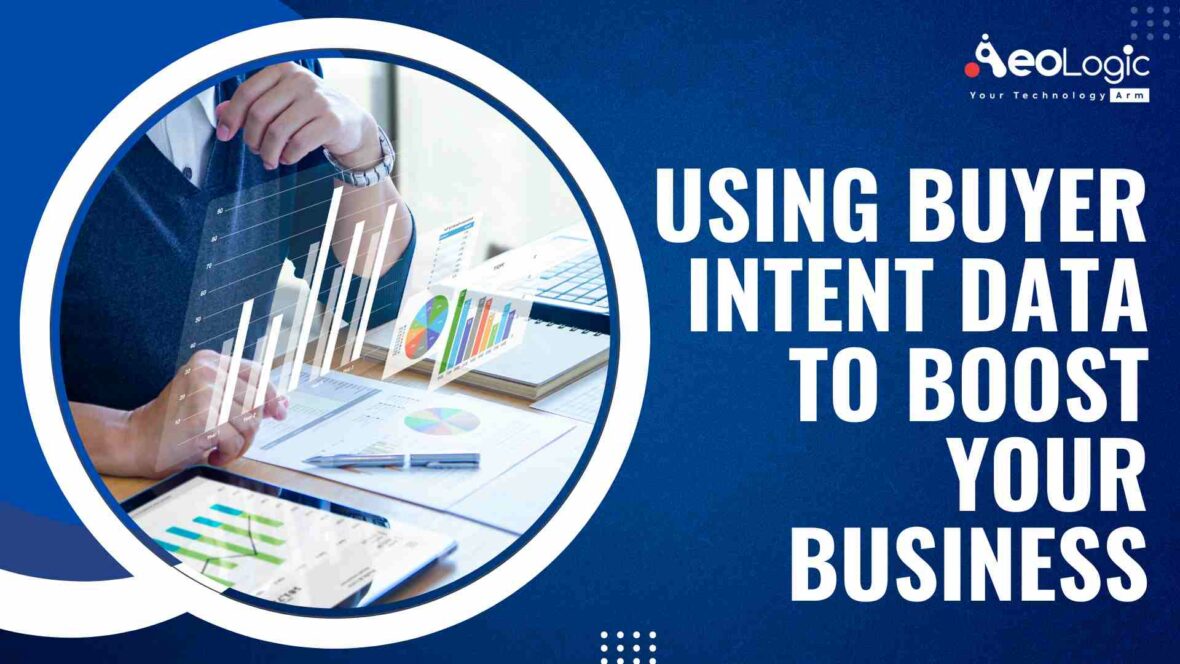It’s no secret that B2B buyers are conducting extensive research online before interacting with providers. Moreover, as per a CSO Insights report, more than 50% of purchasers base their buying decisions on what was found online during initial search sessions or visits for item information. Therefore, if businesses are not reaching out successfully the first time around then you’ll risk losing the opportunity altogether. Thereby, using buyer intent data to boost your business.
Also read: How to Use Intent Data to Run Better Outbound Campaigns
What is Intent Data?
Intent data is a comprehensive collection of datasets that is reflecting a company’s intent for buying a product or service based on their online behavior. Also, intent data is used by B2B marketing and sales teams for understanding the lifecycle of people’s purchasing decisions.

Moreover, using intent data to boost your business is informing B2B marketers on what a potential buyer is likely to purchase, say, or do next on the internet. Furthermore, it is enabling marketers to understand:
- How do they behave on several websites?
- What are they searching for?
- Also, what content are they consuming best?
- What topics are they interested in?
Additionally, intent data is working by tracking the keywords that are typed into search engines. Which is telling businesses what customers are searching for right now -and also what terms they will be using shortly. Intent data is helping you better understand your target audience. And creating content that is appealing to their particular requirements.
How Businesses are Boosting B2B Intent Data
Since intent data is a powerful marketing tool that can be used in several ways. And we’ll go through some of the best practices for incorporating it. Here’s how you can make intent data work for your business:
1. Identifying Early Opportunities
The most apparent application of intent data is reaching out to people earlier in the purchasing process. Getting in touch with prospects previously is one of the most excellent approaches to being a few steps ahead of competitors.
Subsequently, intent data is helping you in identifying prospects in the early levels of the purchasing process. So, you can reach out to prospects before your competition does.
2. Personalizing Your Content
B2B Intent data is informing you of your customer’s topic interests and challenges across nurturing campaigns, content assets, and interaction messages. With this data, you can explore several communications gaps, make enhanced-personalized content, and target people in a more precise way. Using intent data to boost your business will be helping you in identifying information that your target audience is looking for. Therefore, you can be creating content that would appeal to their particular requirements. Intent data is enabling businesses to reach out to customers at the right time with personalized messages based on their interests and challenges.
3. Building Targeted Databases
Also, intent data is valuable when it is coming to account-based marketing (ABM) initiatives. For instance, if you are targeting highly specific firms and people under exact conditions. The utility of intent data is allowing you to rapidly discover who in your B2B leads database fits the bill. Additionally, this information is allowing you to easily plan and adapt your account-based marketing initiatives.
4. Improving Ad Targeting
Intent data is providing an extra degree of precision to your ad campaigns. Thereby, allowing you to send more personalized messages to both known and anonymous people who have expressed interest in your important topics.
Also read: Improve Your B2B Programmatic Advertising Using Intent Data
5. Following-Up
The ability for keeping in touch with your clients after their buyer’s journey is essential to maximizing event marketing ROI. This is entailing tailoring follow-up messaging and measuring the appropriate KPIs to guarantee you’re on track. Using intent data to boost your business is keeping you up to speed on your customer activity. It is even helping your business correlate customers with their more thorough account profiles.

Final Thoughts
In times when sales teams are having to make do with lesser, money, attention, and time intent data guides where to put effort and participate in activities. Your company may be requiring intent data for enhancing your sales funnel and maximizing ROI. Lastly, B2B marketers are leveraging intent data for generating successful and targeted marketing.
Feel free to reach out to us for a free 60-minute consultation with one of our experts.
FAQs
What do you mean by intent data strategy?
Intent data is information that is indicating prospects’ level of interest in a particular item or service online. It is including prospects’ web searches, the pages they visit, and the content they are consuming.
How do you benefit from intent data?
- Identifying cross-sells opportunities
- Personalizing website experiences
- Customizing lead-generation messages
- Evaluating market trends
- Prioritizing in-market buyers based on engagement





